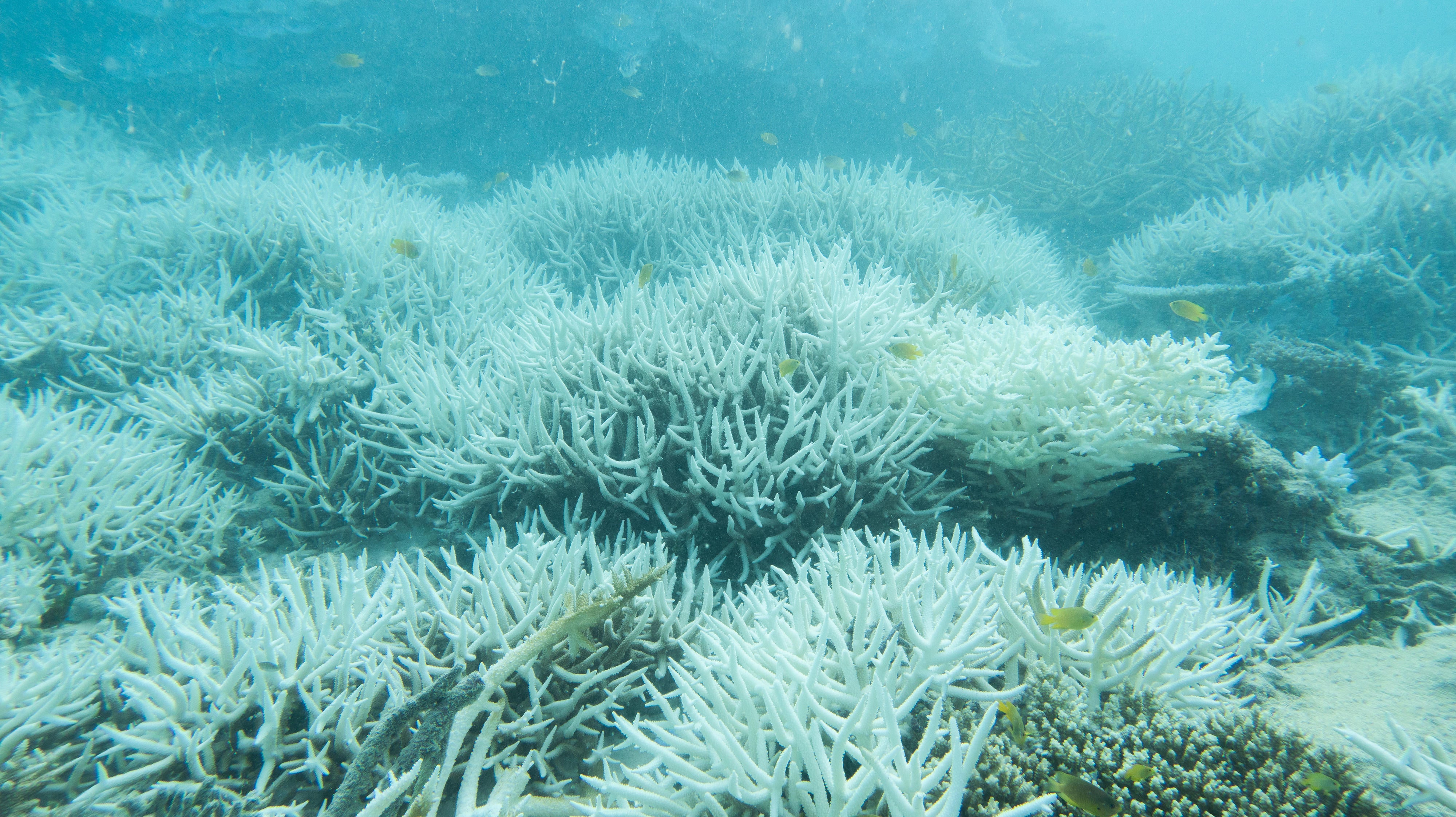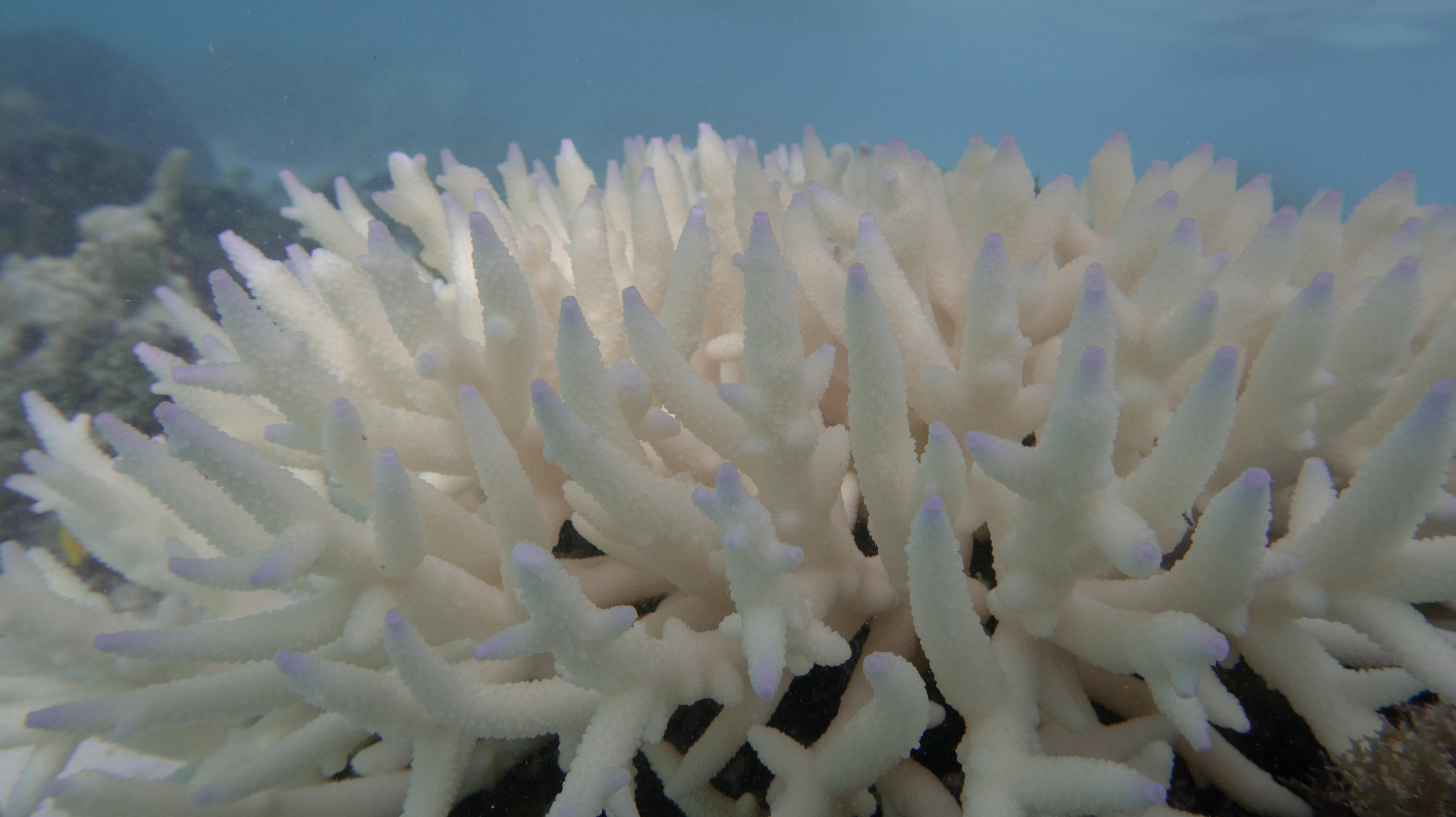Extremely hot temperatures in the waters around Australia’s Great Barrier Reef are “unprecedented” in the past 400 years and are being blamed on climate change, scientists say.
Researchers studying high water temperatures in the Coral Sea, home to reefs that have caused repeated devastating coral “bleaching” events since 2016, said the extreme heatwaves seen in the past decade are the hottest they have seen in data going back four centuries.
Modelling, comparing scenarios with and without human activities such as greenhouse gas emissions from burning fossil fuels, also shows a trend towards warming of the oceans in recent decades and suggests that recent extreme events are due to climate change.
The researchers warned that unless climate change is addressed quickly, “our generation will witness the disappearance of one of the Earth’s great natural wonders”.
The Great Barrier Reef is the world’s largest coral reef system and supports a huge variety of life, from whales and dolphins to 1,500 species of fish, as well as endangered species such as the giant green sea turtle and dugong.
Listed as a World Heritage Site in 1981, the reef is a major tourist attraction in Australia and a significant marine and cultural resource for Australia’s Aboriginal and Torres Strait Islander peoples.
However, rising sea surface temperatures in recent years have led to repeated large-scale coral bleaching events occurring between 2016 and 2024, causing coral deaths and threatening the survival of coral reefs and the wildlife that depend on them.

In a study published in the journal Nature, a team led by Australian scientists used records dating back to 1900 and data from coral core samples, some of which are 400 years old, to reconstruct ocean temperatures up to 1618.
The Coral Sea’s January-March heatwaves in 2024, 2017 and 2020 were each estimated to be the hottest in the past 400 years, and this year’s heatwave is estimated to be 1.73°C higher than the pre-1900 average, according to the researchers.
The next warmest events were in 2016, 2004 and 2022, according to the study.
The study also found that ocean temperatures fluctuated but remained relatively stable for centuries before 1900, but have since warmed significantly during the Industrial Revolution.
Modelling confirms that the rapid warming in recent decades is human-induced, and combined with recent extreme increases in ocean temperatures, a warming trend since 1900 and large-scale coral bleaching events, indicates that an “existential threat” to coral reefs from human-induced climate change is becoming real, the researchers said.

Dr Benjamin Henry, from the University of Wollongong and the University of Melbourne, said: “The Great Barrier Reef is one of the most globally ecologically significant places on Earth and a vast and spectacular natural wonder.
“However, in recent years we have seen large-scale coral bleaching events causing devastating damage to coral reefs.”
He said the study aimed to provide a long-term context for the recent extreme events by reconstructing January-March sea surface temperatures in the Coral Sea over a 400-year period, using coral records drilled in the region and slightly further afield.
“Our research shows that the recent events are extreme events, unprecedented in the past four centuries,” he said.
“Using climate models, we also found that climate change is responsible for the warming and these extreme sea surface temperatures.”
He warned that all the evidence taken together – mass bleaching events, record temperatures, climate change as a cause, knowledge of future climate projections, and extreme heat occurring more frequently than corals can adapt to – showed that “coral reefs are at risk.”
“If we don’t change course, our generation will witness the disappearance of one of the Earth’s great natural wonders, the Great Barrier Reef,” he said.







